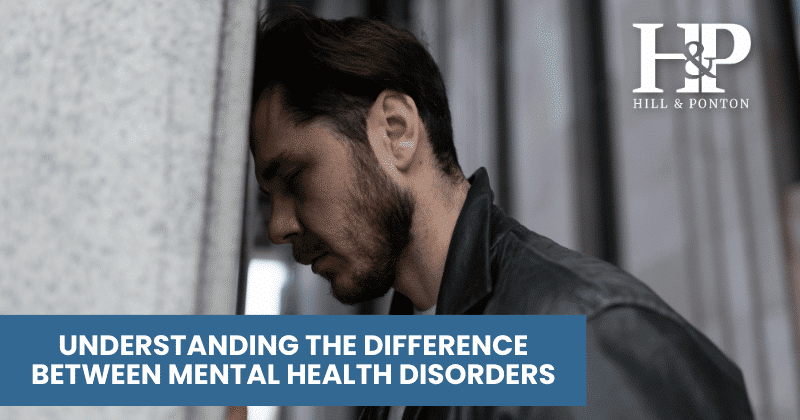Living with a veteran who has been diagnosed with Post-Traumatic Stress Disorder can be challenging, especially for those who are unfamiliar with military service or the experiences they may have gone through.
But countless studies have shown that individuals diagnosed with mental health conditions, including PTSD, can improve their symptoms and get on the road to recovery when encouraged with the proper support system and treatment plan. Here’s how you can help.
Recognize the Common Symptoms of PTSD
Veterans diagnosed with PTSD may not immediately recognize their symptoms, often relying on others to point out changes in their behavior or mood.
Some of the most common symptoms to watch for include:
- Nightmares and Flashbacks: Do they relive a traumatic event over and over?
- Emotional Detachment: Are they cutting themselves off from others?
- Hypervigilance: Do they seem constantly on guard and over-alert?
- Irritability and Anger Outbursts: Are they quick to anger or upset?
- Difficulty Sleeping and Concentrating: Is their sleep schedule abnormal or they struggle to focus on even relatively simple tasks?
- Suicidal Thoughts: Have they made comments about ending their life or attempted?
Recognizing these symptoms is the first step in learning how to support veterans affected by PTSD.
10 Ways to Help a Veteran with PTSD
#1: Educate Yourself
Perhaps the best thing someone can do to help a veteran diagnosed with PTSD, is to learn what you can about it.
You may not be able to directly relate to their military experiences, but reading articles, watching videos and talking to others with similar circumstances may provide you with enough insight to help be more supportive.
Remember to establish clear boundaries to protect your own mental health while being supportive of the veteran.
#2: Encourage Treatment
According to research conducted by the VA, an average of 42 out of 100 veterans will achieve remission of PTSD symptoms when undergoing the proper treatment.
While treatment typically takes a while to have an effect, it has been shown that most can recover from this diagnosis.
The VA offers a variety of treatment programs for PTSD, including therapy and medication. For more information, please visit the VA’s website.
#3 Connect with Other Veterans
Anyone who has spoken at length with a veteran likely knows that they often enjoy talking with other veterans. Encouraging the veteran to reach out to those who may be experiencing similar challenges is a great way to help.
The VA’s List of Medical Centers is a great start to find a location nearby they could visit that may offer PTSD programs that could include support groups with other veterans.
Programs like the Wounded Warrior Project and Disabled American Veterans (DAV) can also put you in touch with local communities of veterans.
#4 Address Suicidal Thoughts Immediately
If a veteran talks about suicide, it is absolutely critical to take them seriously and seek help immediately.
You can contact the Veterans Crisis Line, a 24/7 confidential crisis support for veterans and their loved ones, at 988 (then Press 1). They are also available online or by text message at 838255.
Join Thousands of Veterans!
Get the weekly newsletter that has helped veterans all over the country in the fight for their rightful benefits
join for free#5 Be Patient and Understanding
Living with a veteran with PTSD often requires patience and understanding. Recognize that their behavior is a result of the trauma they experienced and not a reflection of their feelings toward you.
Encourage them to pursue healthy coping mechanisms that promote relaxation and reduce stress, such as exercise, hobbies or mindfulness practices.
#6 Maintain a Supportive Environment
Create a safe and comfortable environment at home, or wherever you interact with the veteran. Avoid large crowds and unfamiliar places, unless discussed beforehand, to prevent accidentally triggering PTSD symptoms.
Help them stay connected with friends and family to prevent isolation, which can worsen PTSD symptoms.
#7 Understand Triggers
Recognize and understand what can trigger PTSD symptoms in a veteran. Triggers can be anything from specific sounds, smells or even situations that remind them of the traumatic event. Knowing these triggers can help you avoid them when possible.
#8 Encourage Healthy Lifestyle Choices
Support veterans in making healthy lifestyle choices. Regular exercise, a balanced diet and sufficient sleep can significantly impact their mental health. Encourage activities that promote overall well-being and stress reduction.
#9 Practice Active Listening
Sometimes, the best support you can offer is simply listening. Practice active listening by giving your full attention, acknowledging their feelings and avoiding judgment or unsolicited advice. Let them know you are there for them.
#10 Seek Professional Support for Yourself
Supporting someone with PTSD or another mental health disorder can be emotionally taxing. It’s important to seek out support for yourself too, if needed.
Therapists or support groups for family members and loved ones of veterans will provide you with tools and support you need to maintain your own mental well-being.
Learn More About How PTSD Affects Veterans
If you want to learn more about living with veterans with PTSD and how this condition impacts them, there are many resources available.
Our website provides a variety of articles including an extensive guide covering PTSD and VA disability benefits for PTSD, treatment options that are available, and statistics regarding veterans with PTSD.
Additionally, the VA offers information that covers symptoms, treatments and resources available to both veterans and their loved ones.
By educating yourself, you can play a critical role in supporting a veteran with PTSD and their journey towards healing and managing their condition.
Cassandra Crosby, an Accredited Agent and claims advocate for Matthew Hill & Shelly Mark’s teams, reviewed the information provided in this post.




